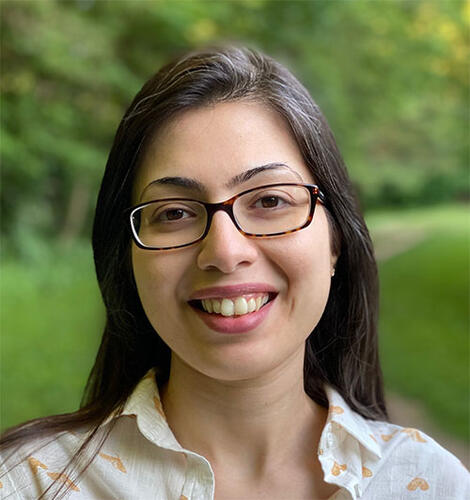Yale University is among the key partners of the new Quantum Leap Challenge Institute for Robust Quantum Simulation, a multi-institutional effort supported by the National Science Foundation (NSF) that is focused on developing quantum simulation devices that can understand, and thereby exploit, the rich behavior of complex quantum systems.
With the University of Maryland serving as the lead institution and funded by a $25 million award from the NSF, the institute brings together computer scientists, engineers, and physicists to develop theoretical concepts, design innovative hardware, and provide education and training for a suite of novel simulation devices that can predict and understand quantum phenomena. In addition to Yale, partners include Duke University, Princeton University, North Carolina State University, and researchers from the National Institute of Standards and Technology.
Quantum simulation is a fundamental step toward realizing a world where general-purpose quantum computers can transform medicine, break encryption, and revolutionize communications. Even the most powerful of today’s “classical” computers struggle to represent even relatively small quantum systems, an obstacle that could be overcome by building next-generation quantum simulators.
The researchers believe that by evaluating the best approaches to small-scale quantum simulation, they can provide a detailed blueprint for what could be early practical applications for quantum computers. They have identified three major scientific challenges to focus their efforts on: methods for verifying the correctness of simulations, the interaction of simulators with their environments, and the development of scalable quantum simulators for science and technology applications.
To do this, the researchers plan to explore the theoretical foundations of quantum algorithms and error correction—in conjunction with experimental implementations of reconfigurable quantum simulators—on four leading hardware platforms: trapped ions, arrays of Rydberg atoms, quantum photonics with solid-state defects and superconducting circuits.
They envision tight collaboration between theoretical and experimental approaches to co-design near-term simulation protocols with current and next-generation devices. This includes the joint development of optical and microwave control techniques across different experimental platforms, allowing for rapid advances in system size and controllability.
Yale’s participation in the institute is led by Shruti Puri, assistant professor of applied physics and a theorist working at the intersection of quantum optics and quantum information processing. Puri will apply her expertise to develop noise-aware protocols for robust quantum simulations.
When designing a quantum simulator, you only want the user to be able to interact with the system. However, in opening the system to the user, it can inadvertently expose it to other objects that the system can interact with in uncontrollable ways.
“You can think of it as an eavesdropper trying to learn something about your quantum system,” Puri said. “And in doing so, it disturbs the system and introduces errors in the quantum simulator.”
Puri’s goal is to find efficient approaches to mitigate or completely suppress such effects.
“The keyword here is efficient, that is, we want to protect our system with as little hardware- or time-overheads as possible,” Puri said. “To this end, our aim is to take a bottom-up approach which exploits the features in the underlying quantum hardware to design robust protocols for quantum control. At Yale, we combine our expertise in physics of quantum hardware and quantum control protocols to achieve this aim.”
The ongoing mission of the NSF Quantum Leap Challenge Institute for Robust Quantum Simulation will also include a strong educational component. Plans call for a new flagship conference on quantum simulation and other outreach and education programs that engage diverse groups of students in quantum science.
Today’s announcement is the latest in a series of federal grants establishing a cohort of Quantum Leap Challenge Institutes nationwide. Three Quantum Leap Challenge Institutes launched last year, with the Quantum Leap Challenge Institute for Robust Quantum Simulation and the Quantum Leap Challenge Institute for Quantum Sensing in Biophysics and Bioengineering—led by the University of Chicago—being funded in 2021.
With science currently undergoing a quantum revolution, NSF is leading the charge through large-scale investments into centers that further the understanding of basic quantum phenomena, fundamental discoveries that will translate into transformative technologies.
“Our Quantum Leap Challenge Institutes program is developing the foundation of quantum information sciences, as well as developing the future students, faculty, startups and industry partners who are engaged in it,” said Sean L. Jones, NSF assistant director of mathematical and physical sciences. “These two new institutes are tapping into challenging fields that have the potential to develop the next generation of tools that will establish the United States at the forefront of quantum innovation.”
Source: Yale SEAS News
